IT’S A HOAX PEOPLE………….and it’s been going around for ages and someone decided revamping the hoax email/post would be funny!!! Read below from Huffington Post.
At the bottom of this post are pictures and explanations of 9 other dumb rumor/hoax items that have surfaced about Facebook.
Facebook Charging In 2011: Chain Letter Spreads False Rumor (PICTURES)
Is Facebook about to start charging its users to access the social network? No, but a new chain letter making its way across Facebook walls wants you to think so.
This rumor comes after Facebook’s recent f8 conference in San Francisco, where the company announced sweeping changes to its Open Graph platform, allowing more sharing than ever before. During the event,Facebook also unveiled a radical new profile layout that will significantly change the look of users’ personal pages.
The chain letter claiming Facebook will begin charging this year alleges that the site must charge its users a fee to pay for the new profile design.
The phony warning reads thus:
IT IS OFFICIAL. IT WAS EVEN ON THE NEWS. FACEBOOK WILL START CHARGING DUE TO THE NEW PROFILE CHANGES. IF YOU COPY THIS ON YOUR WALL YOUR ICON WILL TURN BLUE AND FACEBOOK WILL BE FREE FOR YOU. PLEASE PASS THIS MESSAGE ON, IF NOT YOUR ACCOUNT WILL BE DELETED IF YOU DO NOT PAY
Take a look at the chain letter, in the form of a Facebook post (below), courtesy of Sophos’s Naked Security blog.
Sophos’s Graham Cluley calls the rumor “poppycock.” Writes Cluley, “Facebook doesn’t need to charge you to use Facebook, it’s making plenty of money already by allowing advertisers to reach its 800 million users.”
We’ve heard similar rumors in the past, all equally untrue. A nearly identical rumor, falsely claiming Facebook would begin charging and deleting free accounts, spread virally on the heels of Facebook’s announcement of a Skype-powered video chat feature.
Whenever doubts arise in users’ minds about whether Facebook will remain free, they have only to check out Facebook’s login page, where the company asserts the following: “It’s free and always will be.”
LOOK:
Fortunately, the most harm you can do by posting this current rumor is to further misinform your fellow Facebookers. However, scams periodically surface on the social network, and unsuspecting users who fall for them can end up spamming all their friends, or worse. Take a look at the 9 Facebook scams to watch out for (below).
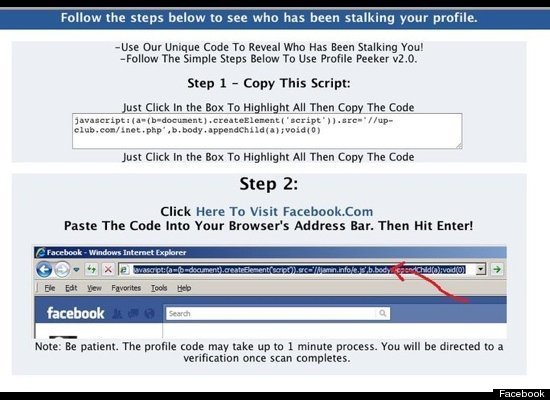
Clickjackers on Facebook entice users to copy and paste text into their browser bar by posting too-good-to-be-true offers and eye-catching headlines. Once the user infects his own computer with the malicious code, the clickjackers can take control of his account, spam his friends and further spread their scam. For example, clickjacking schemes hit Facebook soon after bin Laden’s death and spread like wildfire by purporting to offer users a glimpse at video or photos of bin Laden’s death.

If you click on an ad or a link that takes you to questionnaire on a site outside Facebook, it’s best to close the page. When you complete a fake quiz, you help a scammer earn commission. Sometimes the quiz may ask you to enter your mobile number before you can view your results. If the scammers get your number, they could run up charges on your account.
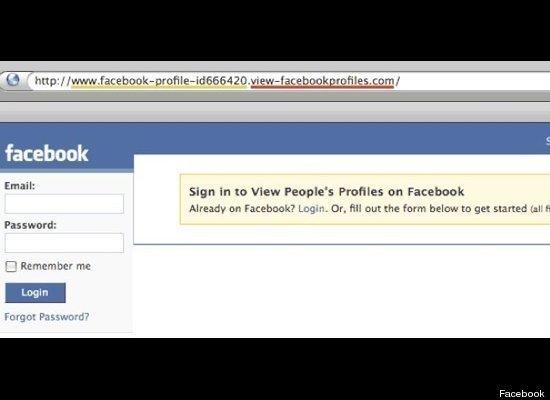
Phishers go after your credentials (username, password and sometimes more), then take over your profile, and may attempt to gain access to your other online accounts. Phishing schemes can be difficult to spot, especially if the scammers have set up a page that resembles Facebook’s login portal.
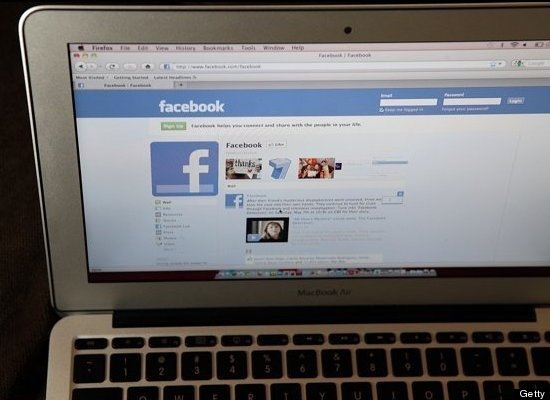
Facebook warns users to be on the lookout for emails or messages from scammers masquerading as “The Facebook Team” or “Facebook.” These messages often suggest “urgent action” and may ask the user to update his account. They frequently contain links to malware sites or virus-ridden attachments. They may even ask for your username and password. The best advice Facebook offers is to report the sender and delete the messages without clicking anything.
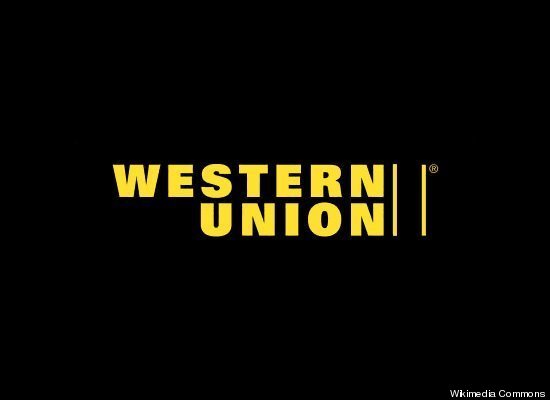
If a friend sent you a desperate-sounding Facebook chat message or wall post asking for an emergency money transfer, you’d want to help, right? Naturally. That’s what makes this scam so awful. The point is to get you to wire money to scammers via Western Union or another transfer service.
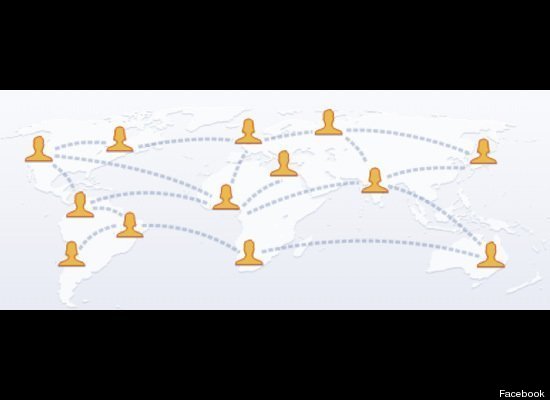
Not all friend requests come from real people, despite Facebook’s safeguards against bots. Some Facebook accounts exist purely to establish broad connections for spamming or extracting personal data from users, so watch out whose friend requests you accept.
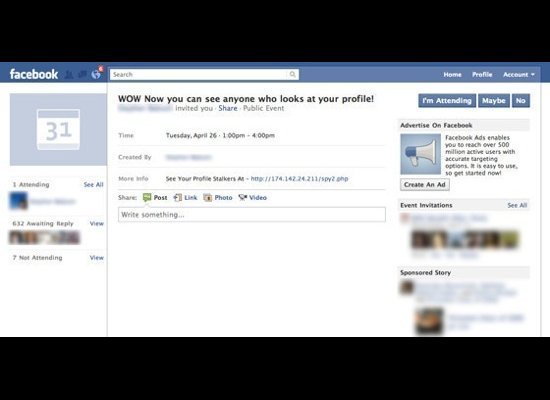
Malicious pages, groups or event invitations aim to trick the user into performing actions that Facebook considers “abusive.” For instance, a fake invite might offer a prize if you forward it to all your friends or post spammy content on their walls. Sometimes a scammer will set up fake pages as a front for a clickjacking or phishing scheme.
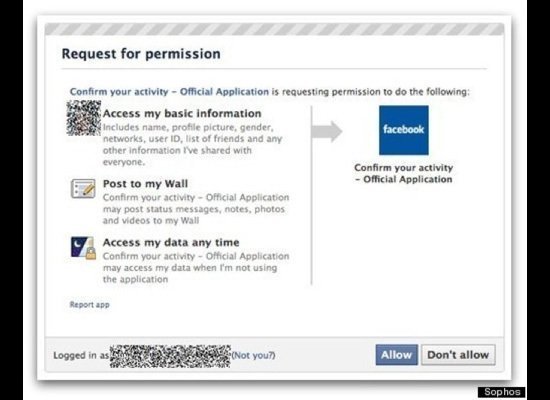
Malicious apps are pretty common on Facebook these days. They can be a cover for phishing, malware, clickjacking or money transfer schemes. Oftentimes, the apps look convincingly real enough for users to click “Allow,” as they would do with a normal Facebook app. However, rogue apps use this permission to spread spam through your network of friends. For example, the recent “Facebook Shutdown” scam spread by claiming that Facebook would delete all inactive accounts except those that confirmed via app installation.

The Koobface worm is getting on in years (it first appeared in late 2008) and has been mostly scrubbed from the site, but Facebook still warns users to look out for it. Koobface spreads across social networks like Facebook via posts containing a link that claims to be an Adobe Flash Player update. Really, the link downloads malware that will infect your computer, hijack your Facebook profile and spam all your friends with its malicious download link. This worm affects mostly Windows users.

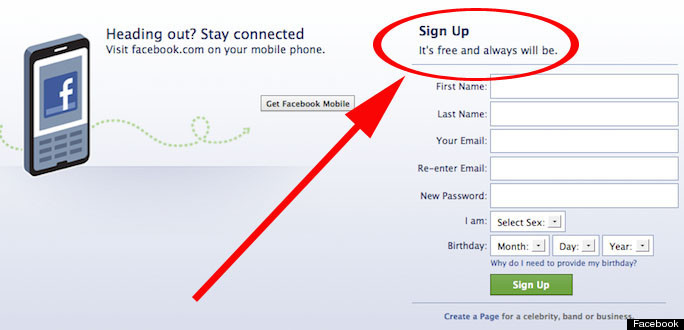

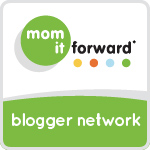


Thanks, very informative
Glad I could help!